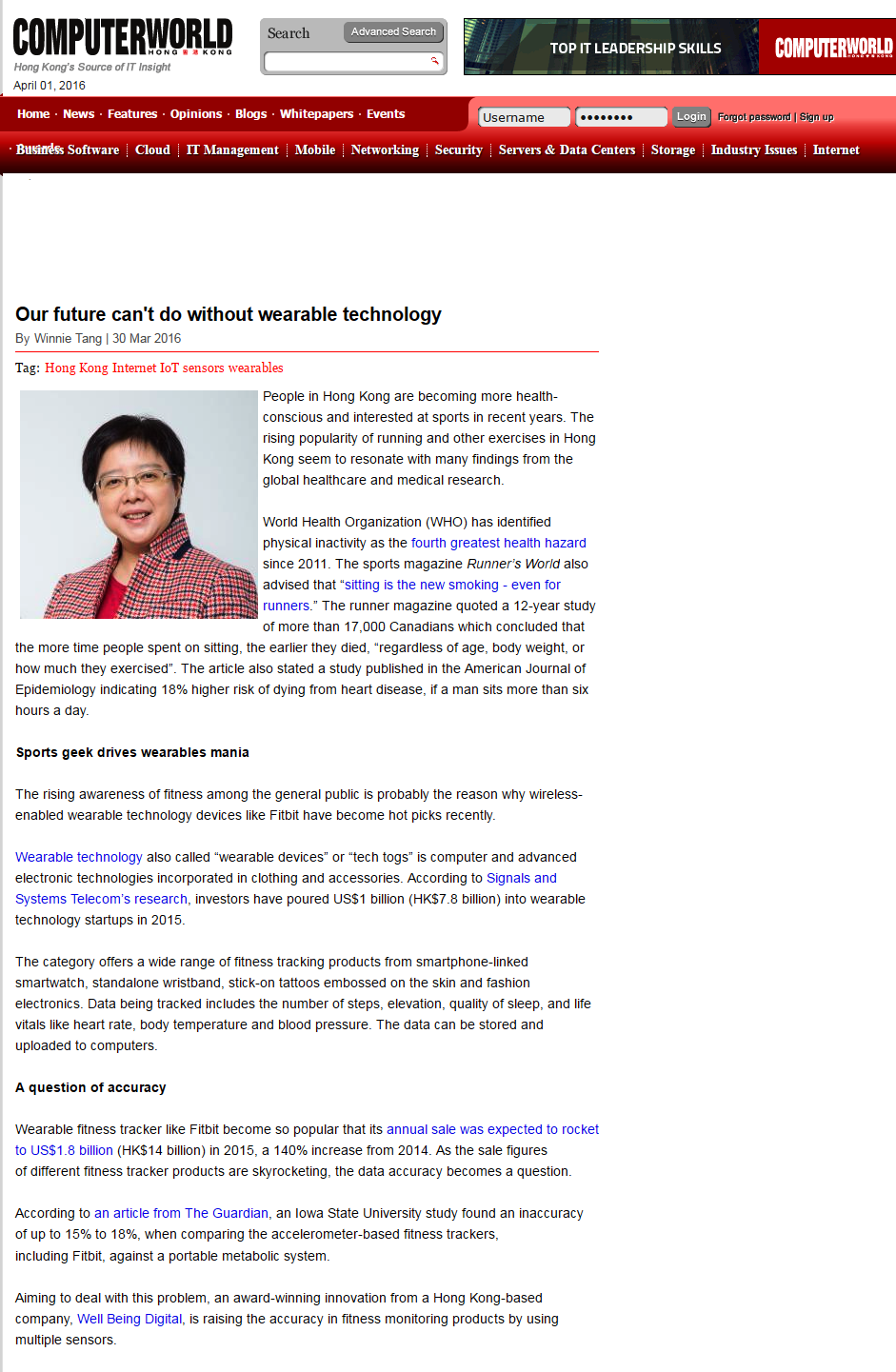
Our future can't do without wearable technology
People in Hong Kong are becoming more health-conscious and interested at sports in recent years. The rising popularity of running and other exercises in Hong Kong seem to resonate with many findings from the global healthcare and medical research.
World Health Organization (WHO) has identified physical inactivity as the fourth greatest health hazard since 2011. The sports magazine Runner’s World also advised that “sitting is the new smoking - even for runners.” The runner magazine quoted a 12-year study of more than 17,000 Canadians which concluded that the more time people spent on sitting, the earlier they died, “regardless of age, body weight, or how much they exercised”. The article also stated a study published in the American Journal of Epidemiology indicating 18% higher risk of dying from heart disease, if a man sits more than six hours a day.
Sports geek drives wearables mania
The rising awareness of fitness among the general public is probably the reason why wireless-enabled wearable technology devices like Fitbit have become hot picks recently.
Wearable technology also called “wearable devices” or “tech togs” is computer and advanced electronic technologies incorporated in clothing and accessories. According to Signals and Systems Telecom’s research, investors have poured US$1 billion (HK$7.8 billion) into wearable technology startups in 2015.
The category offers a wide range of fitness tracking products from smartphone-linked smartwatch, standalone wristband, stick-on tattoos embossed on the skin and fashion electronics. Data being tracked includes the number of steps, elevation, quality of sleep, and life vitals like heart rate, body temperature and blood pressure. The data can be stored and uploaded to computers.
A question of accuracy
Wearable fitness tracker like Fitbit become so popular that its annual sale was expected to rocket to US$1.8 billion (HK$14 billion) in 2015, a 140% increase from 2014. As the sale figures of different fitness tracker products are skyrocketing, the data accuracy becomes a question.
According to an article from The Guardian, an Iowa State University study found an inaccuracy of up to 15% to 18%, when comparing the accelerometer-based fitness trackers, including Fitbit, against a portable metabolic system.
Aiming to deal with this problem, an award-winning innovation from a Hong Kong-based company, Well Being Digital, is raising the accuracy in fitness monitoring products by using multiple sensors.
Winnie Tang